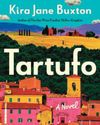
As The Picture Book Whisperer and Editor for Bushel & Peck Books, I'm regularly invited to conferences to give manuscript critiques. Most recently, I participated in the Florida SCBWI (Society of Children's Book Writers & Illustrators) Critique-aPalooza, and from the feedback I received on my critiques, I scored like a champ. Since these involved 15-minute Zoom conversations with the authors, I already knew that I witnessed how my written and verbal comments were difference-making.
Best of all, no one cried.
You might think that last sentence was left in for the comedic value, but here's the truth-when I started teaching writing at the college level 20-whatever years ago, I did make someone cry. Maybe even a few someones. Why? Because it'd been commonplace in my grad school writing workshops for students to get blubbery during or immediately after a professor's critique. After all, when speaking about critiques, don't we often use words like "destroy," "tear to shreds," and "rip apart"? How can that happen without the writer taking a few-or many!-blows as well?
This all got me thinking: What do I now know about giving critiques that I didn't know then? After serious reflection-and talking to a few dynamite pro critiquers-I offer the following.
DISCOVER INTENTIONS
I used to assume what the author and the story needed. These days, I ask. Small wonder then that if I learn a writer wants a lot of attention on plot, and then I give lots of feedback on plot, they're super happy.
In my college writing workshops, I invite authors whose work is up for group critique to bullet-point three specific things/areas/ideas they'd like feedback to touch upon. Of course, people can and do give more than that, but this guarantees we all have the same primary bull's-eyes.
It's so simple, yet many critiquers skip this high-impact, author empowering step!
GO HIGH AND LOW
Esta historia es de la edición September - October 2023 de Writer’s Digest.
Comience su prueba gratuita de Magzter GOLD de 7 días para acceder a miles de historias premium seleccionadas y a más de 9,000 revistas y periódicos.
Ya eres suscriptor ? Conectar
Esta historia es de la edición September - October 2023 de Writer’s Digest.
Comience su prueba gratuita de Magzter GOLD de 7 días para acceder a miles de historias premium seleccionadas y a más de 9,000 revistas y periódicos.
Ya eres suscriptor? Conectar

What Is Your Story Question?
Revision and editing advice to take your first draft to the next level.

Writing for the People We Hope to Become
Elisa Stone Leahy's new middle-grade novel, Mallory in Full Color, tackles the in-between moments of adolescence, when who we are and who we want to become collide.

Creating Community
Whether hot off the presses or on the shelves for years, a good book is worth talking about.

Pat Barker
The Booker Prize-winning author of Regeneration shares the role characters play in developing novel ideas and explains what appeals to her about reimagining mythology.

How to Write in Different Genres
Emiko Jean and Yulin Kuang share tips and strategies for how they successfully write in different genres and mediums.

The Shortest Distance Between Two Points
Ten tips for writing a novel with 100-word stories.

Mayfly Marketing
How to sell your novel in a short-attention-span world.

"You'll be a great essay".
How to write six types of personal essays by finding the funny in your life.

The Idea Factory
Tired of staring at an empty screen? Unlock your inner fiction generator with these surprising inspiration techniques.

Seinfeld Was Right: That's a Story
Use mundane moments from everyday life to create stories that pack a punch.